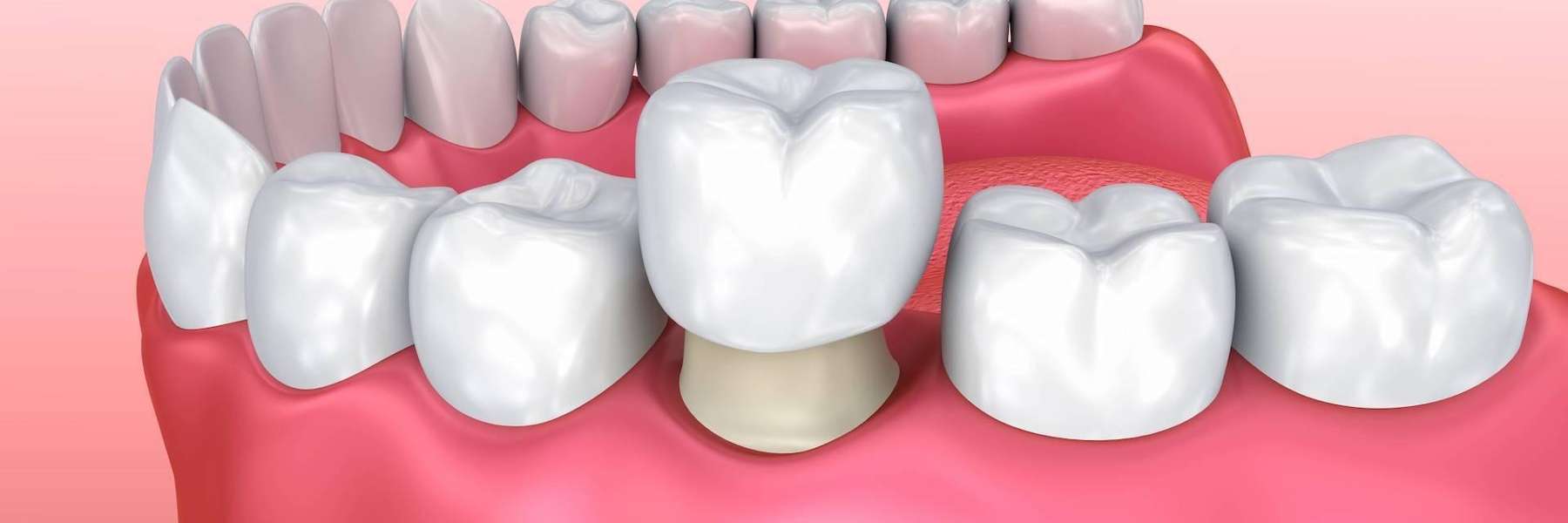
When tooth decay or tooth loss strikes, serious measures must be taken to restore the form and function of a patient’s mouth.
We often talk about dental implants as the superior option among tooth replacement solutions. And rightfully so. However, after an implant is placed into the jawbone and allowed to fuse permanently in place, there is still the question of an artificial tooth to restore the chewing function as well as the aesthetics of the patient’s smile.
This is where dental crowns come in!
Whether as a protective covering for a tooth weakened by severe decay or sitting atop an implant as a tooth replacement, dental crowns are a vital tool in restorative dentistry.
Understanding Dental Crowns
Dental crowns, or “caps," as they’re also known, are tooth-shaped prosthetics that cover and encase a damaged or weakened tooth or sit atop dental implants after tooth loss. Dental crowns serve multiple purposes:
- Restoration – Crowns restore the shape, strength, and function of a tooth.
- Protection – Dental crowns shield damaged and already vulnerable teeth from the dangers of fractures or infection.
- Cosmetic enhancement – Crowns enhance the appearance of misshapen, discolored, or poorly aligned teeth.
Types of Dental Crowns and Their Longevity
It’s worth noting that not all dental crowns are alike. In terms of both look and longevity, there is an array of different types of crowns suited to a variety of needs and circumstances:
- Natural-looking porcelain crowns, which are preferable for visible teeth, typically last 10-15 years.
- Combining the aesthetics of porcelain with the durability of metal, porcelain-fused-to-metal crowns typically last between 15 and 20 years
- Aesthetically attractive all-ceramic crowns also tend to last 15-20 years
- Strong and long-lasting metal crowns, which sacrifice aesthetics for durability and are thus often used to replace molars, can be expected to last up to 10-20 years.
The length of time your dentistry lasts depends on taking proper care of it.
Tips for Maximizing Dental Crown Longevity
Here are a few tips to help ensure the longevity of your dental crowns:
- Practice excellent oral hygiene in order to prevent decay and disease in the teeth and gums underneath a crown.
- Avoid hard or sticky foods, which can damage or dislodge a crown.
- If you grind your teeth while sleeping, wearing a night guard to bed can protect your crowns from wear.
- Visit your dentist regularly for routine examinations and cleanings.
- If you notice any discomfort or signs of damage, seek dental care promptly.
Dental Crowns in Colorado Springs, CO
If you’re in Colorado Springs and would like to learn more about the benefits of dental crowns and how to maximize their lifespan, contact dentist Dr. Mike Terveen and the team at Springs Family Dental to schedule a consultation!




